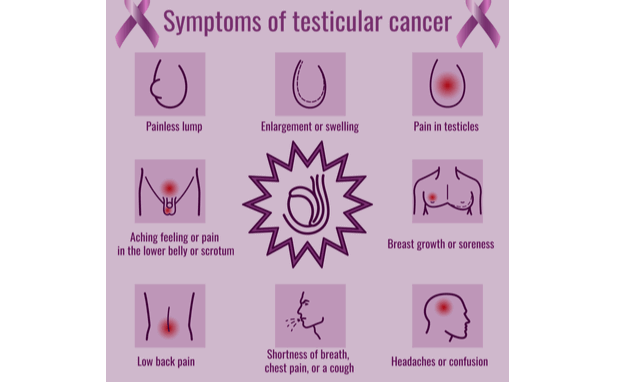What All Men Need To Know About Testicular Cancer
No cancer is good news but relatively speaking, if detected in time, Testicular cancer is easier to treat. It is rare worldwide, and even rarer in India. It is more curable than most other cancers so it is important that certain steps are taken for early detection.
The cancer manifests inside the testes, located inside the male scrotum. Reported cases of this disease have increased over the last decade in India. Its overall cases are generally lower than other variants of cancer and can be cured with a timely diagnosis.
What Symptoms Should One Look Out For?

Unlike prostate cancer, testicular cancer is more prevalent in younger men, any male between the ages of 15 to 40 years. Having said that, there have been cases of infants or elderly men getting it, because of multiple factors.
Keep a lookout for the following symptoms, which might be due to other factors but if you detect them, consult your doctor at the earliest;
- Testicular lump: A lump in or on either of the testicles which is often painless. Until proven otherwise, any lump or firm part of the testicle should be considered a potential tumor.
- Heaviness in scrotum
- Dull, continuous pain in abdominal or groin
- Irregular collect of fluid in the scrotum
- Testicle shrinking
- Persistent lower back pain
- Enlargement and tenderness in breasts
What Are The Risk Factors of Testicular Cancer?

Although the medical industry has not determined the exact causes of testicular cancer, there are some risk factors that have been shown to cause it:
- Cryptorchidism: Known as the ‘undescended testicle’, it is a major contributing factor.
- Inguinal hernia: Males born with a hernia in the groin are also susceptible .
- Abnormalities in the region: People born with abnormalities in the kidney, penis, or testicles
- Age: Younger are men are more prone to it
- Family history: Get regular screenings if any of your immediate family members have had a history of testicular cancer.
- Mumps Orchitis: A rather rare condition, in which one or both testicles get inflamed.
- Klinefelter’s Syndrome: A condition where testicles do not develop to normal size and may pose a risk of testicular cancer
So far medical research has concluded that it can be prevented but it is advisable to maintain a healthy lifestyle, so that even if anyone gets it, the body is strong enough to fight it. It does not drastically affect sexual performance. There is a dip in sperm counts after surgery but you can regain by making a few changes to your diet and lifestyle, in consultation with your doctor.






